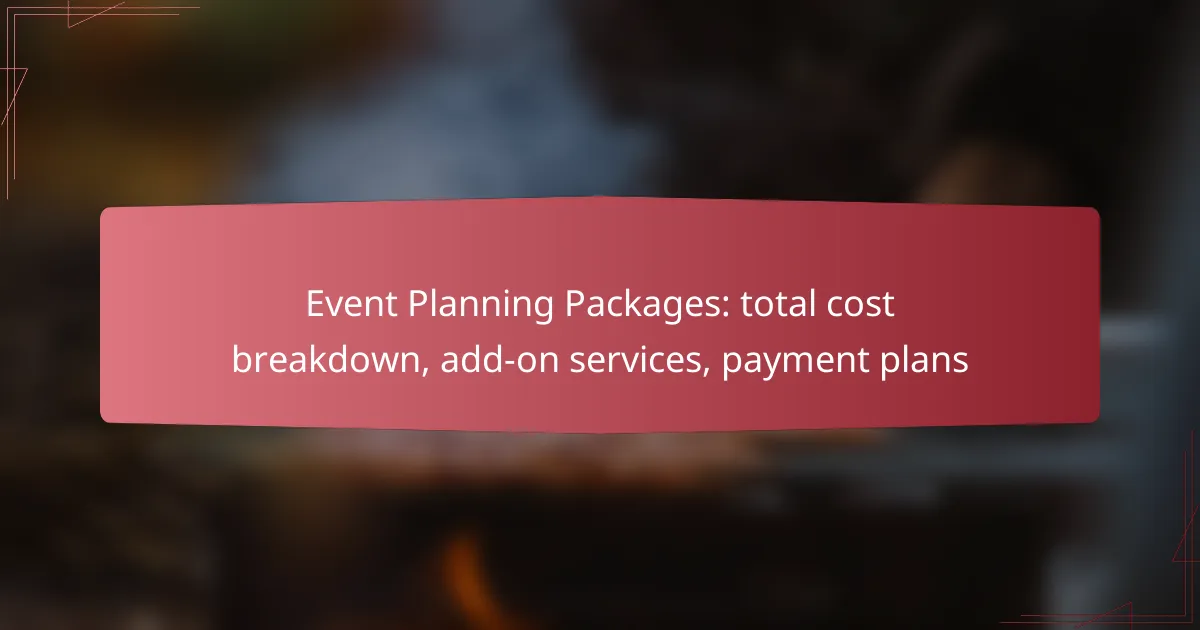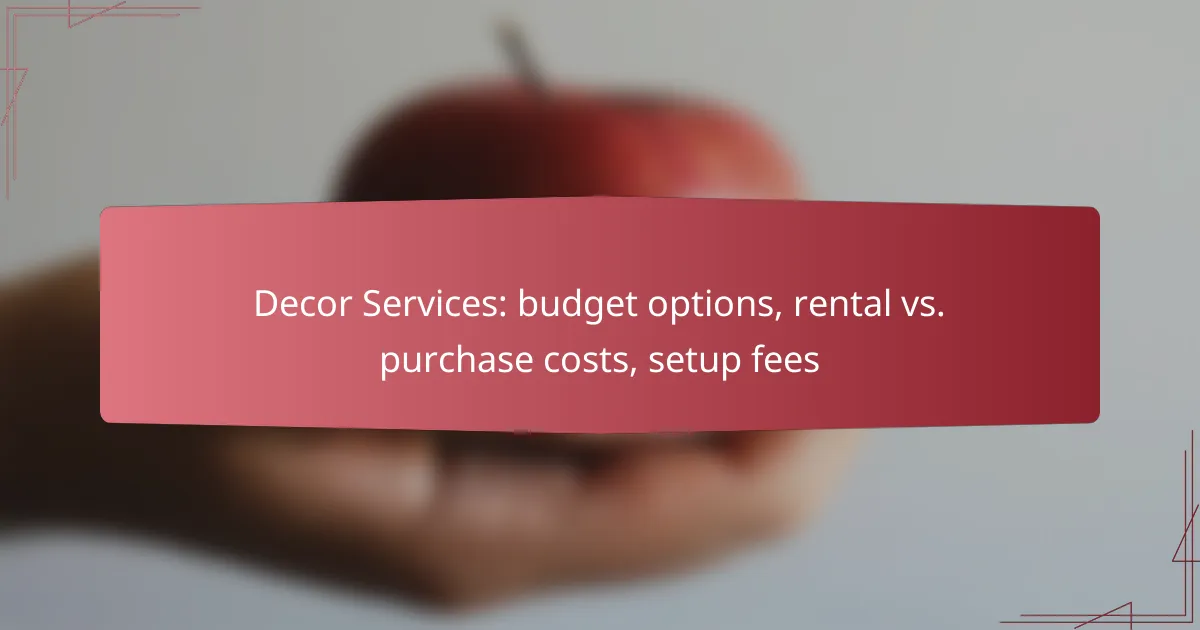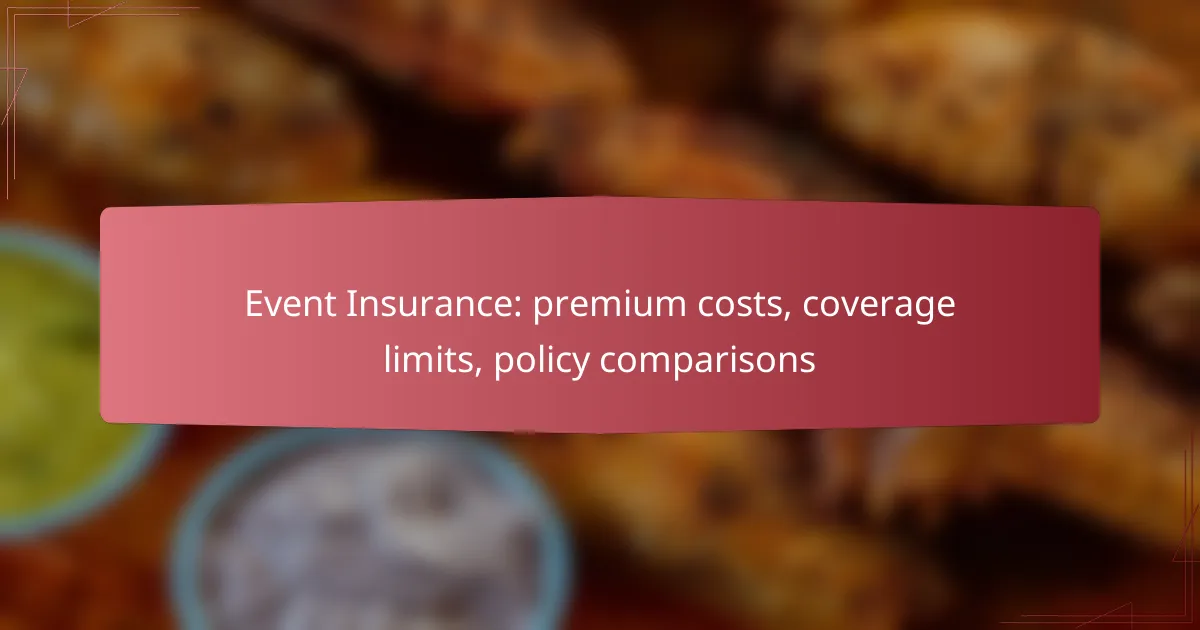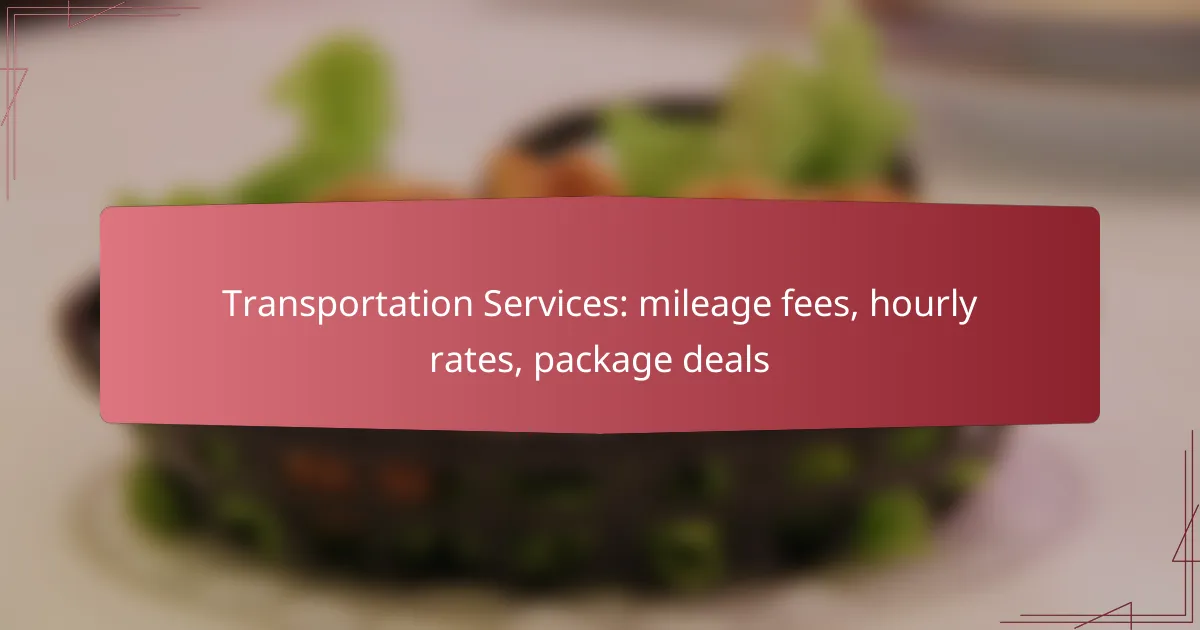When planning an event, understanding the total cost breakdown of packages is essential, as prices can range from a few hundred to several thousand pounds depending on your requirements. Add-on services like catering, entertainment, and venue decoration can further enhance your event, allowing for a customized experience. Additionally, many event planners provide flexible payment plans, including deposits and installment options, to facilitate a seamless financial process.
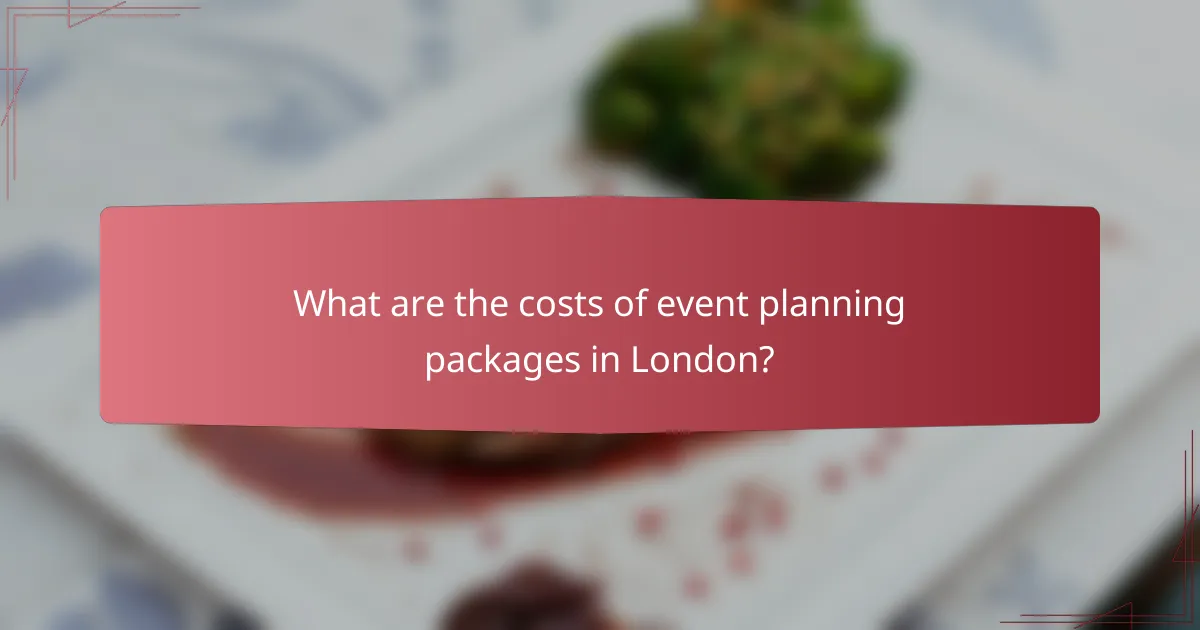
What are the costs of event planning packages in London?
The costs of event planning packages in London can vary significantly based on the services included and the scale of the event. Generally, you can expect to spend anywhere from a few hundred to several thousand pounds, depending on your specific needs and preferences.
Basic package pricing
Basic event planning packages in London typically range from £500 to £1,500. These packages often include essential services such as venue selection, basic decor, and coordination on the day of the event. They are ideal for smaller gatherings like birthday parties or corporate meetings.
When choosing a basic package, consider what is included. Some planners may offer a flat fee, while others charge based on the number of guests or hours of service. Always clarify what is covered to avoid unexpected costs.
Premium package pricing
Premium event planning packages can cost between £2,000 and £10,000 or more, depending on the complexity and scale of the event. These packages often include comprehensive services such as advanced decor, catering, entertainment, and full event management. They are suitable for weddings, large corporate events, or high-profile parties.
Investing in a premium package can provide a stress-free experience, as it typically covers all aspects of event planning. However, ensure that you review the details of what is included, as add-on services can quickly increase the overall cost.
Factors affecting costs
Additionally, the choice of vendors for catering, entertainment, and decor can significantly affect your budget. It’s advisable to get multiple quotes and compare services to find the best value for your needs. Always factor in potential add-ons that may not be included in the initial package price.
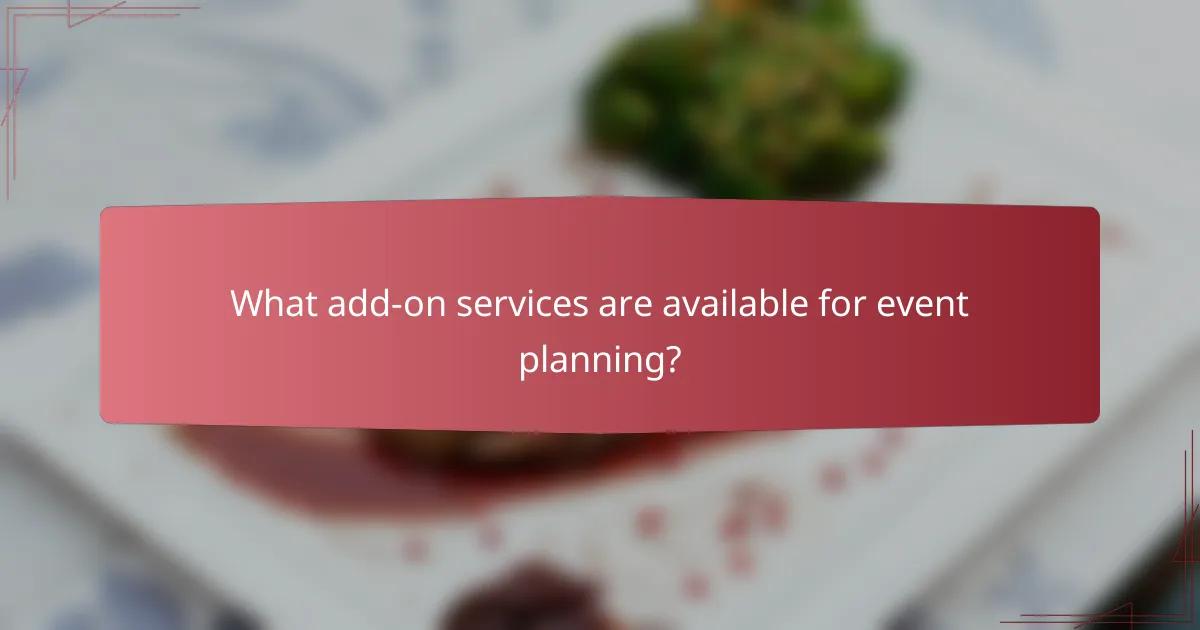
What add-on services are available for event planning?
Add-on services for event planning enhance the overall experience and can be tailored to meet specific needs. Common options include catering, entertainment, and venue decoration, each contributing to the event’s success and atmosphere.
Catering options
Catering options can range from buffet-style meals to plated dinners, and even food stations that allow guests to customize their plates. Consider dietary restrictions and preferences when selecting a menu, as offering vegetarian, vegan, or gluten-free options can accommodate a wider audience.
Pricing for catering can vary significantly based on the menu complexity and guest count, typically ranging from $20 to $150 per person. It’s advisable to request tastings and detailed quotes from multiple caterers to ensure quality and value.
Entertainment services
Entertainment services can include live bands, DJs, speakers, or interactive activities like photo booths and games. The choice of entertainment should align with the event’s theme and audience to create an engaging atmosphere.
Costs for entertainment can vary widely, from a few hundred dollars for a local DJ to several thousand for a well-known band. Booking early and discussing your budget with entertainment providers can help secure the best options within your price range.
Venue decoration
Venue decoration involves transforming the space to reflect the event’s theme and mood. This can include centerpieces, lighting, drapery, and signage, which all play a crucial role in creating an inviting environment.
Decoration costs can range from modest DIY setups to professional services that may charge hundreds to thousands of dollars, depending on the complexity and materials used. Consider renting items instead of purchasing them to manage costs effectively, and always check for local vendors who can provide tailored services within your budget.
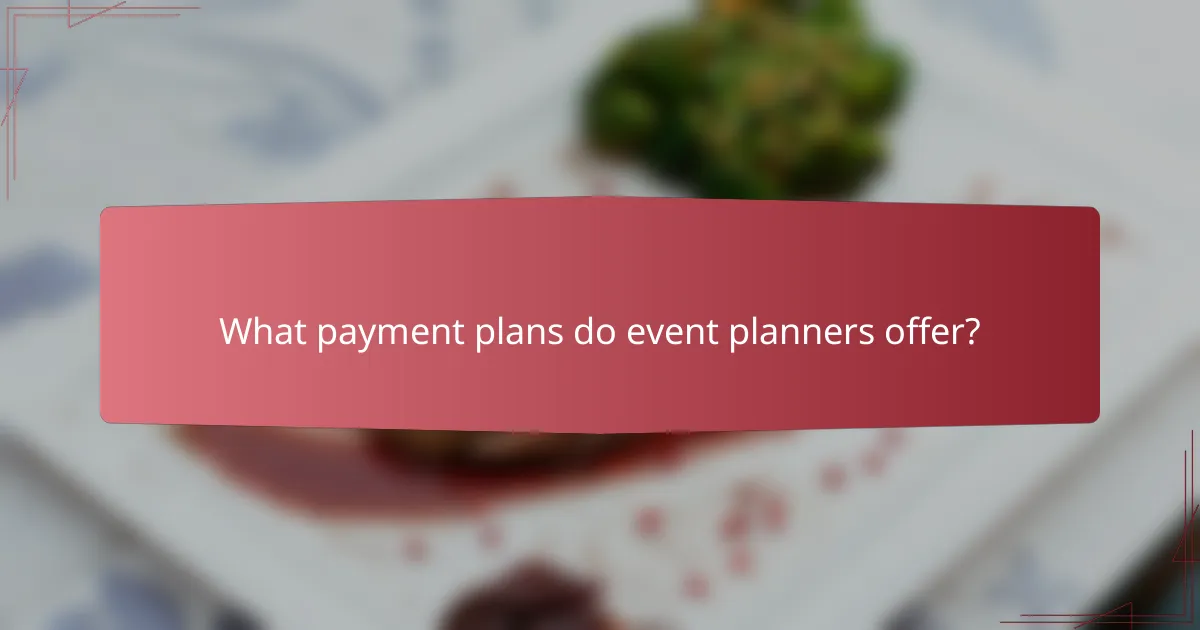
What payment plans do event planners offer?
Event planners typically offer flexible payment plans to accommodate different client needs. These plans often include a deposit, installment options, and a final payment deadline to ensure a smooth transaction process.
Deposit requirements
Most event planners require a deposit to secure your booking, usually ranging from 20% to 50% of the total event cost. This upfront payment confirms your commitment and allows the planner to begin preparations. Be sure to clarify the deposit amount and payment method before signing any contracts.
Some planners may offer lower deposits for early bookings or larger events, so it’s worth negotiating if you’re planning a significant occasion.
Installment options
Many event planners provide installment payment options, allowing clients to pay off the remaining balance in scheduled payments leading up to the event. These installments can be set monthly or bi-weekly, depending on your agreement. This flexibility can ease financial pressure and help you manage your budget effectively.
Check if there are any additional fees for using installment plans, as some planners may charge interest or processing fees. Always confirm the total cost before committing to a payment schedule.
Final payment deadlines
Final payments are typically due a few weeks before the event, often ranging from 30 to 14 days prior. This deadline allows the planner to finalize arrangements and cover any last-minute expenses. Make sure to review your contract for specific dates and conditions regarding the final payment.
Missing the final payment deadline can result in penalties or even cancellation of your event, so set reminders and ensure you have the funds available in advance.
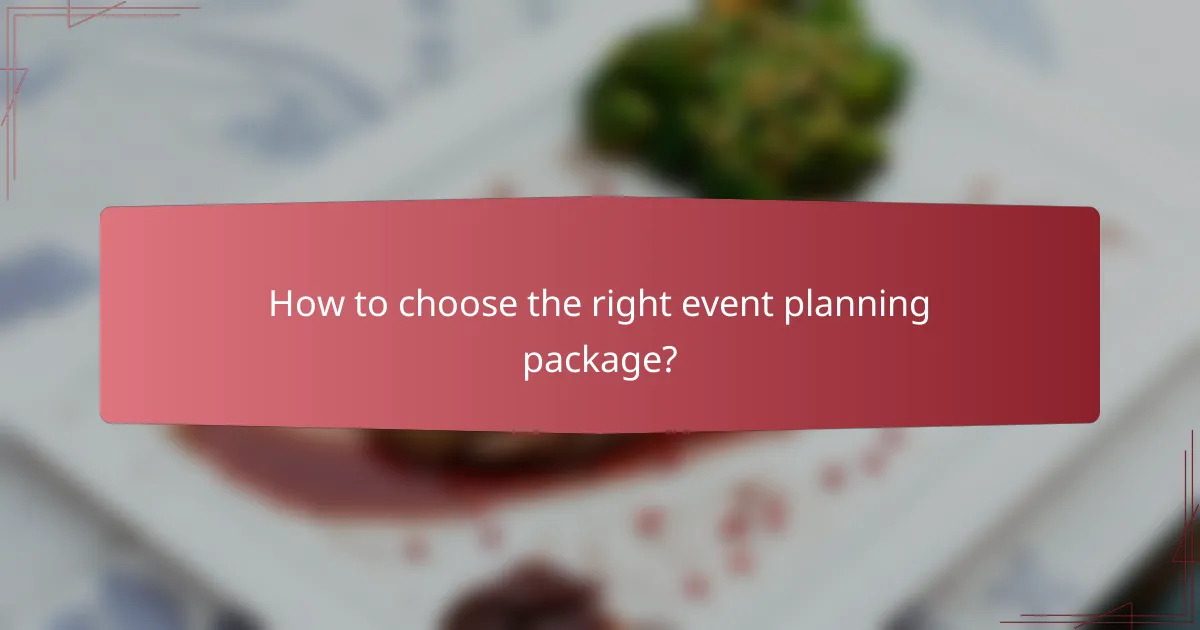
How to choose the right event planning package?
Choosing the right event planning package involves evaluating your budget, identifying specific needs for your event, and comparing local services. This process ensures that you select a package that aligns with your goals and financial constraints.
Assessing your budget
Start by determining how much you can allocate for the event. Event planning packages can range from a few hundred to several thousand dollars, depending on the complexity and scale of the event. Consider all potential costs, including venue, catering, entertainment, and decor.
Establish a budget range that allows for flexibility. It’s wise to set aside an additional 10-20% for unexpected expenses. This cushion can help you avoid financial stress as the event date approaches.
Identifying your event needs
Clearly outline the requirements for your event, such as the type of occasion, number of guests, and desired atmosphere. Different events, like weddings or corporate functions, have unique needs that can influence the choice of package.
Consider essential services you may need, such as catering, audiovisual equipment, or transportation. Prioritize these needs to help narrow down your options and ensure that the chosen package covers all critical aspects of your event.
Comparing local services
Research local event planning services to find packages that fit your needs and budget. Look for reviews and testimonials to gauge the quality of their offerings. Websites and social media can provide insights into their past events and client satisfaction.
Request quotes from multiple planners to compare services and pricing. Pay attention to what each package includes, such as the number of planning hours, vendor coordination, and on-site support. This comparison will help you make an informed decision that meets your expectations.

What are the benefits of hiring a local event planner?
Hiring a local event planner offers numerous advantages, including their familiarity with the area, which can enhance the overall event experience. They can navigate local resources efficiently, ensuring a smoother planning process and a successful event.
Knowledge of local venues
Local event planners possess in-depth knowledge of various venues in the area, including their capacities, layouts, and unique features. This expertise allows them to recommend spaces that align with your event’s theme and size, ensuring a perfect fit.
Additionally, they can provide insights into venue availability and pricing, helping you avoid common pitfalls like booking conflicts or hidden fees. For example, they may know which venues offer discounts during off-peak seasons.
Access to local vendors
Local planners have established relationships with a network of reliable vendors, including caterers, florists, and entertainment providers. This access can lead to better pricing and service quality, as they often negotiate favorable terms based on their ongoing partnerships.
Moreover, they can recommend vendors who have a proven track record in the area, reducing the risk of last-minute issues. For instance, a local planner might suggest a caterer known for their timely service and quality food that meets local tastes.
Understanding local regulations
Event planners are well-versed in local regulations that may impact your event, such as permits, noise ordinances, and health codes. This knowledge is crucial for ensuring compliance and avoiding potential fines or disruptions.
For example, they can guide you on necessary permits for outdoor events or restrictions on alcohol service. By navigating these regulations effectively, a local planner can save you time and stress, allowing you to focus on other aspects of your event.

What trends are emerging in event planning packages?
Emerging trends in event planning packages focus on sustainability, technology integration, and personalized experiences. These trends reflect a shift towards more responsible, innovative, and tailored approaches to event management, enhancing both attendee satisfaction and operational efficiency.
Sustainable event practices
Sustainable event practices are becoming increasingly popular as planners seek to minimize environmental impact. This includes using eco-friendly materials, reducing waste, and sourcing local products. For instance, opting for digital invitations instead of printed ones can significantly cut down paper usage.
Additionally, many venues now offer green certifications, which can guide planners in selecting locations that prioritize sustainability. Incorporating these practices not only appeals to environmentally conscious attendees but can also enhance the event’s overall image.
Technology integration
Technology integration in event planning packages enhances engagement and efficiency. Tools like event management software streamline registration, ticketing, and attendee tracking. Virtual and hybrid events have also gained traction, allowing broader participation through live streaming and interactive platforms.
Using apps for real-time feedback and networking can significantly improve attendee experience. Planners should consider investing in reliable technology solutions that align with their event goals to maximize impact and engagement.
Personalized experiences
Personalized experiences are increasingly essential in event planning, as they cater to individual preferences and needs. This can range from customized agendas to tailored communication strategies that resonate with specific audience segments. Collecting data on attendee preferences beforehand can help in crafting these experiences.
Offering customizable packages, such as meal options or activity choices, allows attendees to feel more connected to the event. Planners should focus on understanding their audience to create memorable and meaningful experiences that foster engagement and satisfaction.
